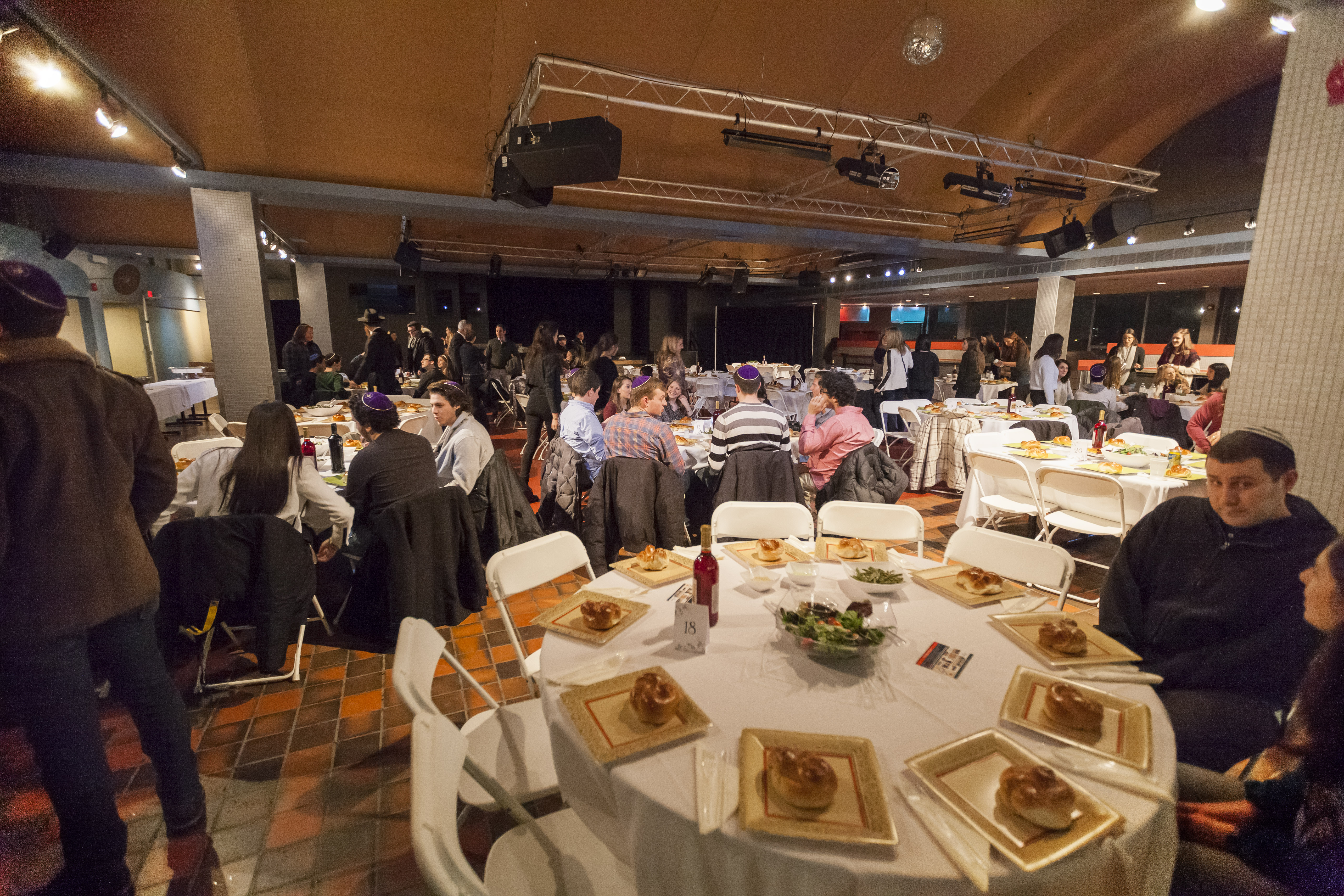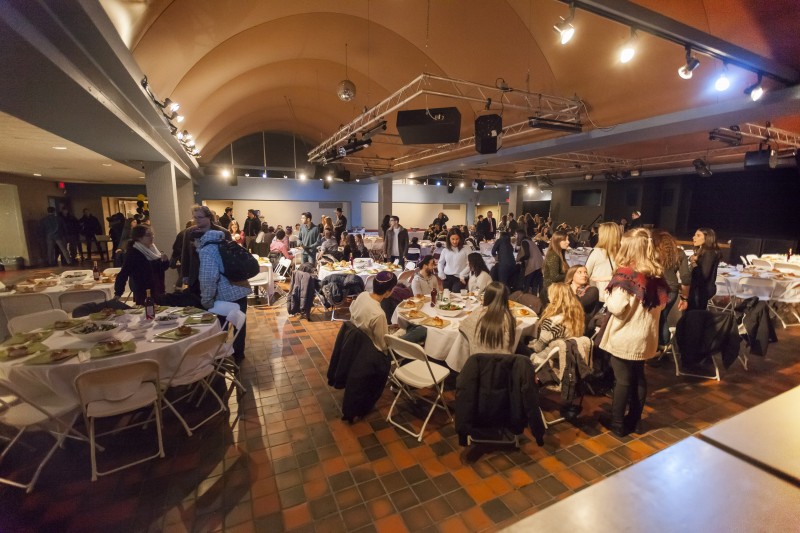Shabbat dinner provides support and awareness for Jewish community

Last year they set out to gather 150 Jewish students; this year they aimed for 180.

In an effort to raise awareness about the Jewish community within the Waterloo region, the Rohr Chabad Centre for Jewish Life organized an event attempting to break the regional record for the largest Shabbat dinner. The event, held at Turret Nightclub on Jan. 9, was open to Jewish students from both Wilfrid Laurier University and the University of Waterloo.
This is the second year the Centre has held Shabbat at the Turret.
Last year they set out to gather 150 Jewish students; this year they aimed for 180.
The Rohr Chabad Centre holds Shabbat dinners most Fridays throughout the year at their location on Albert Street.
“The typical, average week at our place sees anywhere from 50 to 75 students coming for dinner,” said Moshe Goldman, rabbi and co-director at the Centre.
Goldman is also Jewish chaplain at UW, Laurier and Grand River Hospital.
The idea of hosting a larger dinner came from what he was observing at other university campuses around North America.
“We just heard about it from different campuses and we thought it would be exciting and cool so [we thought we should] try it out,” he said.
Beyond the attendance of Jewish students from both universities, Laurier president Max Blouw and UW president Feridun Hamdullahpur were in attendance Thursday evening.
At the event both presidents emphasized the importance of diversity and respect that events like Shabbat can create for students on campus.
Goldman explained that Shabbat is rooted in the Bible, where God commanded the Jewish people to rest from work on the seventh day of the week, and as a result is a day devoted to spirituality, reflection and prayers.
In a university setting with constant demands for work and extra-curricular activities, Goldman believes Shabbat is important for Jewish students to observe on a weekly basis.
“I do classes, education, social stuff — but nothing gets a bigger response than a Shabbat service and dinner,” he said. “A lot of people are familiar with it from home, but not everybody is, not everyone is that practicing of Jewish culture and religion.”
“University is tough, it’s demanding. Shabbat is a very natural, organic antidote and healing for six days of craziness. Students really appreciate it — I hear that all the time,” Goldman continued.
Goldman believes they surpassed their goal of 180 easily.
But even with the larger size and space to host Shabbat, the goal of the evening was not to have a “fireworks show and everyone go home.”
“The point is to really raise the awareness and let the Jewish students know there is a community for them here and that everyone should come out [to Shabbat and the Centre] on a weekly basis,” Goldman explained.

